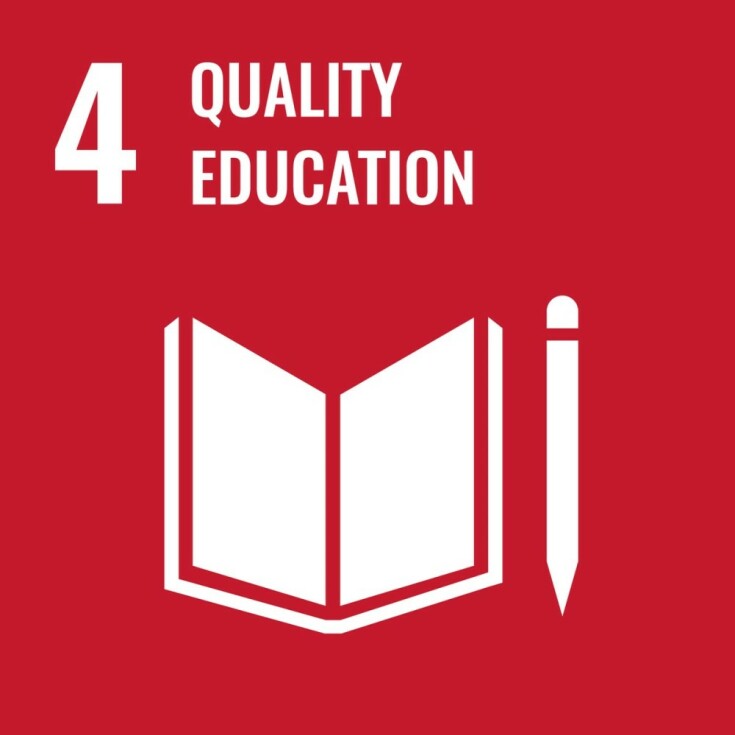As the Global Week to #Act4SDGs continues, we publish excerpts from our brief “The role of media: Driving change towards the SDGs”. Here we discuss the relationship between media and the education (SDG 4: Quality Education).
“Knowledge is power. Information is liberating. Education is the premise of progress, in every society, in every family. (…) Because an educated electorate is a powerful electorate. Because an informed citizenry is the greatest defender of freedom. Because an enlightened government is a democratizing government”
– Kofi Annan, former UN Secretary General[i]
A plural, independent media plays an essential role in educating the public[ii] and disseminating information that people need to make responsible, informed decisions that shape their lives, from spreading scientific information to non-experts[iii] to helping voters gain political knowledge[iv]. Educational media programmes and materials can supplement classroom education and facilitate distance learning[v], in particular in rural and remote contexts[vi].
Greater press freedom is associated with higher adult literacy rates and school enrolment ratios[vii] and there is a relationship between access to media and literacy rates among children[viii]. In fact, the exposure to mass media among mothers decreases the likelihood that their children will drop out of school.[ix] Increased public access to information was also found to reduce capture and corruption of public funds within the public education system.[x]
Below we present case studies of impactful journalism and information sharing done by MDIF clients done in the area of SDGs 3 and 6 as real-world examples that illustrate the transformative power of media.
Examples of impact
In Peru, a rector of one of the oldest private universities was suspected of plagiarising the work of third parties as well as using the same work to obtain multiple academic titles. Regional outlet El Búho scrutinised the rector for fraud and published evidence of plagiarism. A lecturer who denounced the wrong-doing and revealed the evidence to journalists was dismissed from the university, a blatant move to sweep the issue under the carpet. To eliminate the evidence of what was denounced, the rector allegedly also withdrew the copies of theses he plagiarised from the university library and the virtual search system. The case was referred to the prosecutor’s office.
In South Africa, Scrolla, a mobile-first platform that reports community news, published a story about a student who performed very strongly in her school leaving exams despite living in a one-room shack and her classroom being a converted steel container for 67 pupils. Her dream was to study architecture, but she had no money to continue with her tertiary education. After her story was published, the girl was offered a bursary from the Department of Public Works and Infrastructure to study architecture at the University of Johannesburg.
Read the full brief “The role of media: Driving change towards the SDGs” here.
[i] UN (1997). “Address to World Bank Conference Global Knowledge 1997”
[ii] Limpitlaw, J (2002). “The role of the media and press freedom in society“.
[iii] Ball, J.C.H (1974). “UNESCO: The use of radio in science education”
[iv] de Vreese, C.H. Boomgaarden, H (2006). “News, Political Knowledge and Participation: The Differential Effects of News Media Exposure on Political Knowledge and Participation”. Acta Politica; Aalberg, T. Curran, J (2012). “How Media Inform Democracy: A Comparative Approach”. Routledge; Graber, D (2004). “Mediated Politics and Citizenship in the Twenty-First Century” Annual review of psychology
[v] UNESCO (2020). “Learning through radio and television in the time of COVID-19”
[vi] Jumani, N.B (2010). “Role of radio for rural education in Pakistan” Doctoral dissertation, Allama Iqbal open University
[vii] Guseva, M et al. (2008). “Press freedom and development: an analysis of correlations between freedom of the press and the different dimensions of development, poverty, governance and peace”. United Nations Educational Scientific and Cultural Organization.
[viii] Keefer, P. Khemani, S (2011). “Mass Media and Public Services: The Effect of Radio Access on Public Education in Benin”. World Bank policy research working paper.
[ix] Sateesh Gouda M., T V Sekher (2014). “Factors Leading to School Dropouts in India: An Analysis of National Family Health Survey-3 Data”. IOSR Journal of Research & Method in Education.
[x] Reinikka, R. Svensson, J. (2004). “The Power of Information: Evidence from a Newspaper Campaign to Reduce Capture”. World Bank Publications; [xi] Reinikka, R. Svensson, J (2005). “Fighting corruption to improve schooling: Evidence from a newspaper campaign in Uganda”. Journal of the European economic association.
